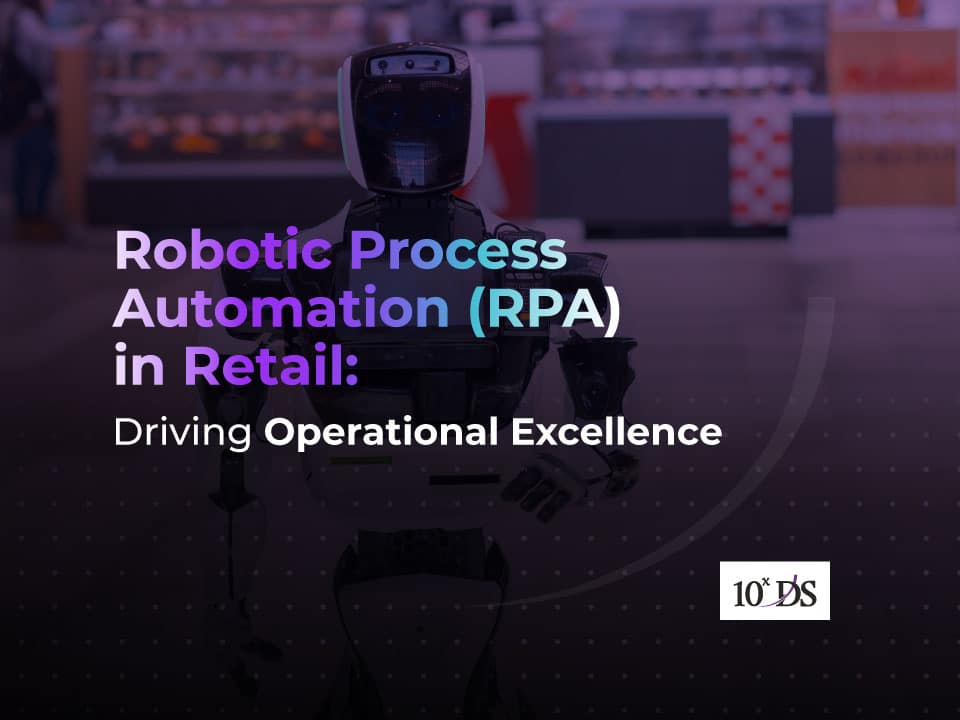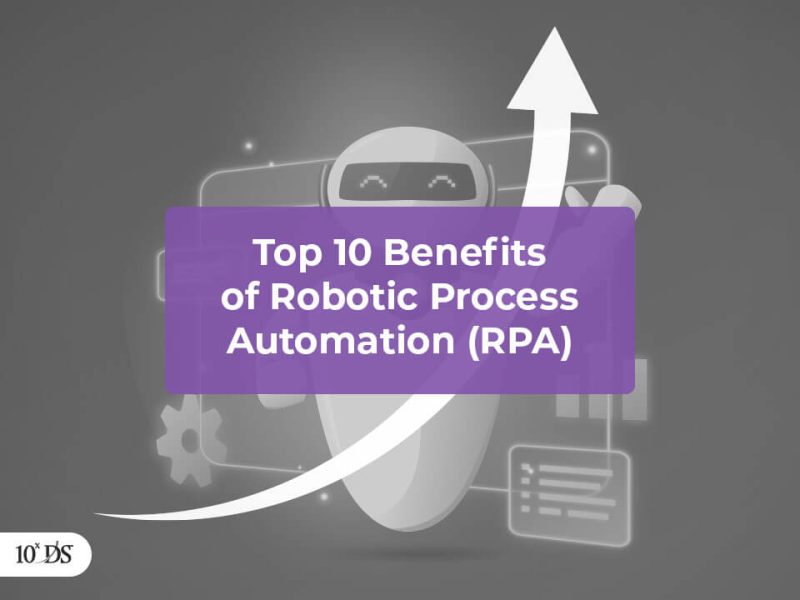
Robotic Process Automation (RPA) in Retail: Driving Operational Excellence
In today’s fast-paced retail industry, companies are looking for ways to stay competitive and improve operational efficiency. Inventory management using RFIDs, Self-checkout kiosks, Chatbots and virtual assistants for customer service etc are some of the advanced automated mechanisms adopted by retailers. One technology that is gaining popularity is Robotic Process Automation (RPA), which involves automating repetitive tasks and processes using software robots. According to a report by Grand View Research, the global RPA market size is expected to reach USD 25.56 billion by 2027, growing at a CAGR of 40.6% from 2020 to 2027. Another report by Forrester Research found that the adoption of RPA in retail is expected to grow significantly in the coming years, driven by the need for cost savings, increased productivity, and improved customer experiences. RPA can be used to automate a wide range of retail processes, from inventory management to order processing, customer service, and more. Here are some of the common use cases for RPA in the retail industry.
1. Inventory management
RPA can be used to automate the inventory management process, including inventory tracking, stock replenishment, and purchase order generation. This not only saves time and reduces errors, but it also helps retailers maintain optimal inventory levels and reduce overstocking or understocking.
2. Order processing and fulfillment
RPA can be used to automate the order processing and fulfillment process, including order tracking, shipping notifications, and customer communications. This helps retailers fulfill orders more quickly and accurately, improving customer satisfaction and reducing the workload for employees.
3. Price optimization
RPA can be used to automate the price optimization process, including competitor price monitoring and dynamic pricing adjustments. This helps retailers stay competitive and maximize profits by adjusting prices based on demand and other market factors.
4. Customer service
RPA can be used to automate customer service tasks, including responding to inquiries, resolving issues, and processing returns and exchanges. This not only saves time and reduces errors, but it also improves the customer experience by providing quick and accurate responses.
5. Data entry and processing
RPA can be used to automate data entry and processing tasks, including invoice processing, payroll processing, and financial reporting. This helps retailers save time and reduce errors, while also improving data accuracy and compliance.
6. Sales and marketing
RPA can be used to automate sales and marketing tasks, including lead generation, lead nurturing, and customer segmentation. This helps retailers improve the efficiency of their sales and marketing efforts, while also increasing revenue and customer engagement.
7. Store operations
RPA can be used to automate store operations tasks, including employee scheduling, task management, and store audits. This helps retailers optimize store operations and reduce labor costs, while also improving store performance and customer satisfaction.
There are also many real-life case studies that demonstrate the effectiveness of RPA in the retail industry. Walmart has implemented RPA technology to automate several of their retail processes, including inventory management and price optimization. They have also used RPA to monitor competitor prices and adjust their own prices dynamically to remain competitive. Tesco, a British multinational grocery and general merchandise retailer, has used RPA technology to automate their human resources processes, including employee onboarding and payroll processing. Loblaws used RPA technology to automate their accounting processes, including invoice processing and financial reporting and H&M implemented RPA to automate their online order processing and fulfillment processes.
Retailers who embrace automation can reduce costs, increase efficiency, and improve the customer experience. With the rapid advancement of technology, it is likely that automation will continue to transform the retail industry in the years to come. By automating processes, retailers can reduce costs, improve efficiency, and focus on providing the best possible shopping experience for their customers. However, it is important to note that while RPA can provide many benefits, it is not a one-size-fits-all solution, and retailers should carefully evaluate their needs and goals before implementing RPA technology.
Talk to our experts to know more!


